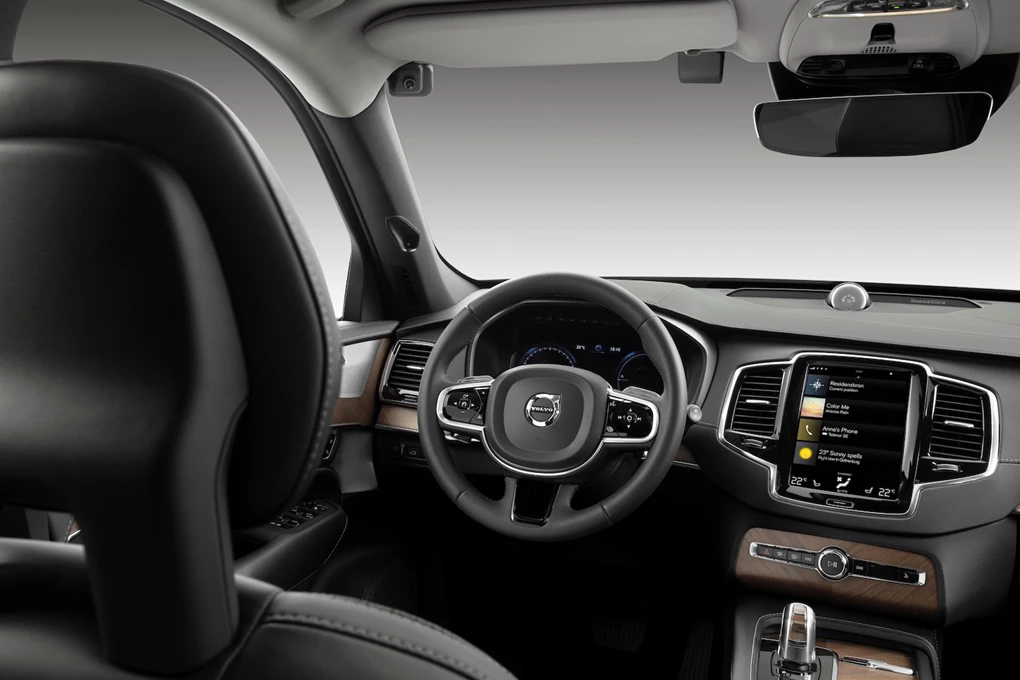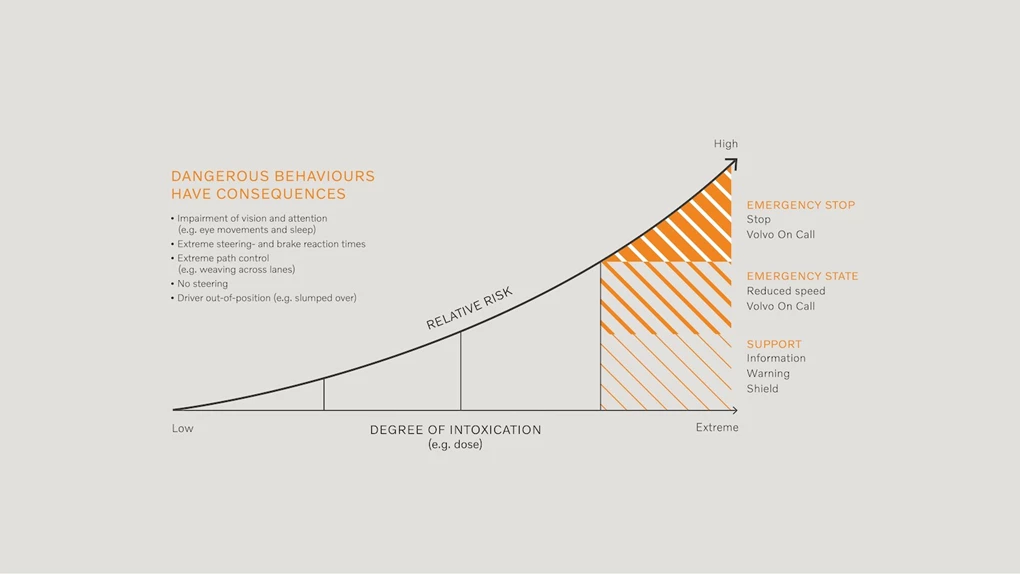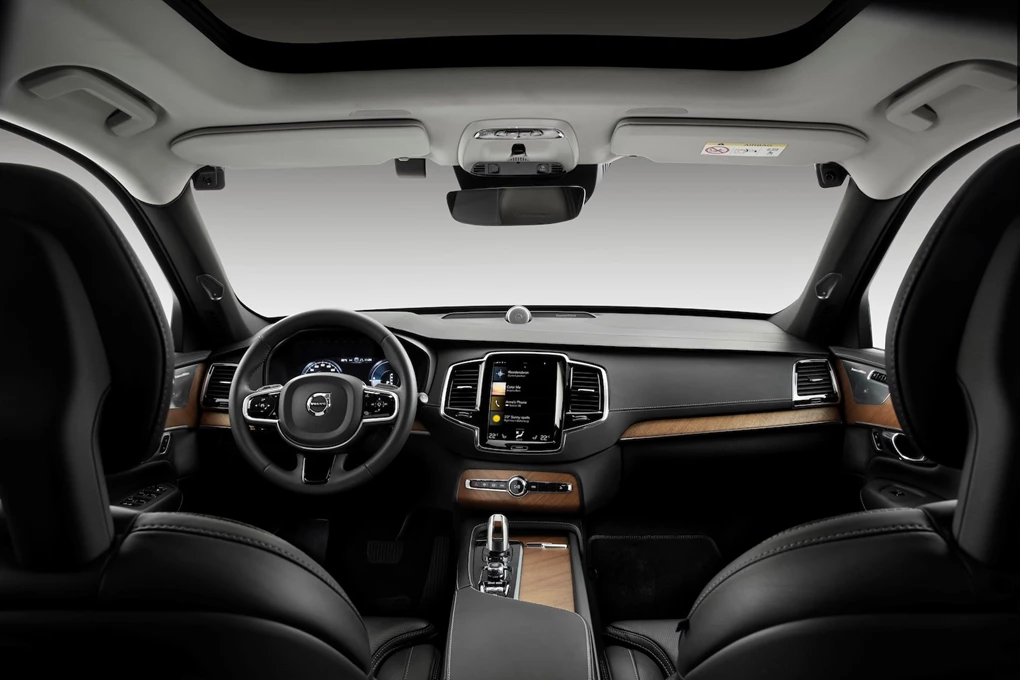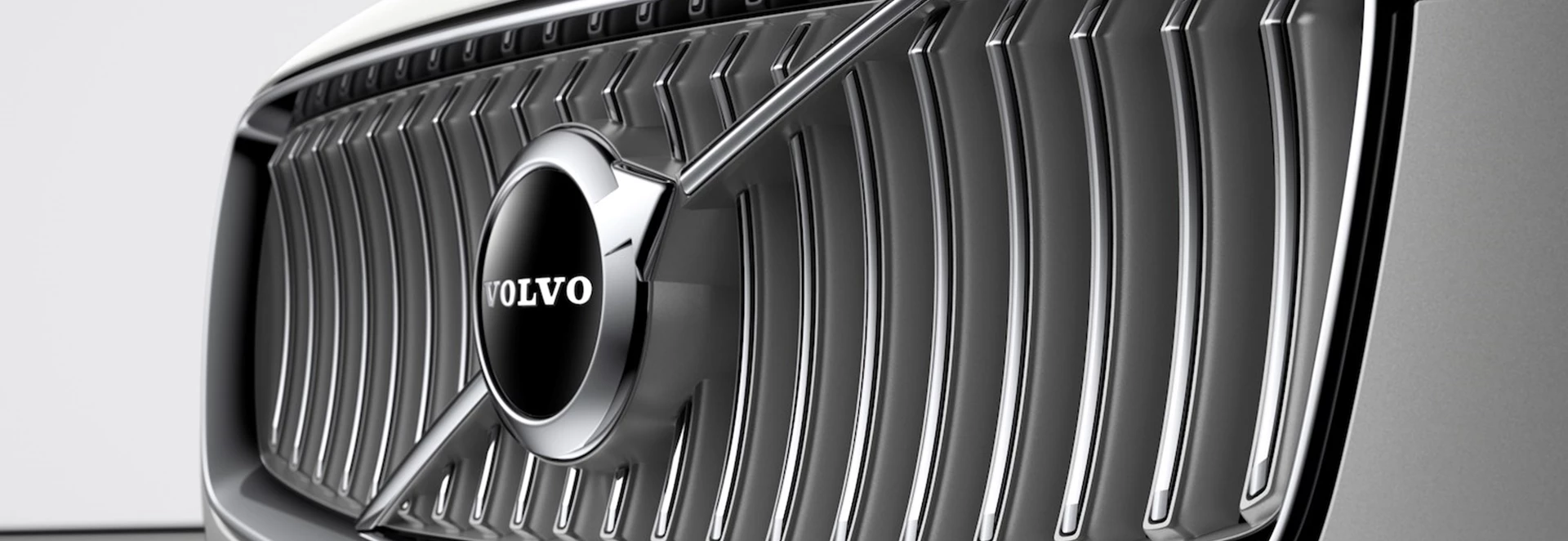Volvo has announced that future models will be fitted with sensors and cameras designed to detect and prevent driver intoxication and distraction.
The Swedish brand has already said this year that it will be capping the top speed of all its vehicles to 112mph from 2021 – with the firm claiming the three main dangers to drivers are currently speeding, intoxication and distraction.

With these additional sensors and cameras picking up the driver’s behavioural traits, the car would prevent people from operating it if the motorist wasn’t responding the warnings and putting other road users at risk.
Other behaviour, such as a lack of steering input for an extended period, drivers with their eyes off the road or what’s ahead, extreme weaving or slow reaction times, could also be triggers for safety mechanisms.
Volvo says that if those signs are detected, the car could cap the speed limit, send an alert to Volvo On Call assistance service or even slow itself down and park safely.
See Available Volvo deals
Henrik Green, senior vice president of R&D at Volvo Cars, said: “When it comes to safety, our aim is to avoid accidents altogether rather than limit the impact when an accident is imminent and unavoidable. In this case, cameras will monitor for behaviour that may lead to serious injury or death.”
The tech will work in conjunction with the vehicle’s autonomous features and be installed on Volvo vehicles based on the SPA2 scalable platform that is set to be introduced in the early 2020s.

Trent Victor, Volvo Cars professor of driver behaviour, said: “There are many accidents that occur as a result of intoxicated drivers.
“Some people still believe that they can drive after having had a drink, and that this will not affect their capabilities. We want to ensure that people are not put in danger as a result of intoxication.”




